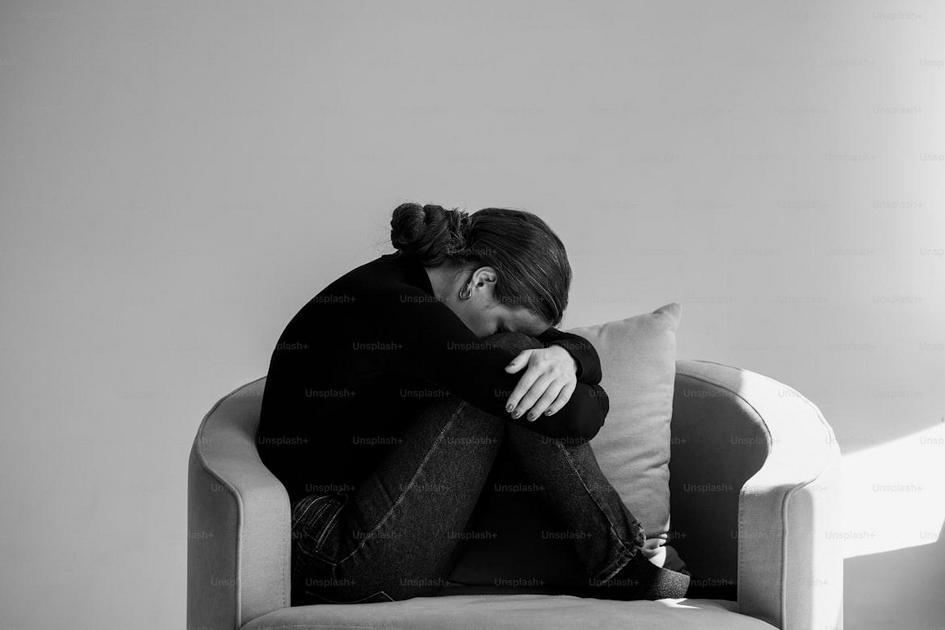For many women, the link between insomnia and depression is often overlooked, yet it impacts daily life significantly. A lack of restorative sleep can amplify feelings of sadness and hopelessness, while depression can keep you tossing and turning at night. Understanding this intricate relationship is crucial for women, especially those over 30, who may be silently struggling with fatigue, hormonal imbalances, and anxiety.
In this article, we explore this complex issue and provide insights into how women can navigate these challenges. If you have found yourself trapped in a cycle of sleepless nights and overwhelming feelings, know that you are not alone. Many women face these silent struggles each day.
Understanding Insomnia in Women
Insomnia is more than just difficulty falling asleep; it can profoundly affect daily life. Many women at or above the age of 30 report experiencing various sleep disruptions. Hormonal fluctuations, work stress, and family responsibilities often contribute to insomnia, making it a common concern for women.
Understanding the nature of insomnia begins with recognizing its symptoms. Women might find themselves tossing and turning, waking up frequently throughout the night, or feeling excessively tired during the day despite seemingly getting enough rest. The cycle can feel unending, leading to frustration and anxiety about sleep.
The Link Between Depression and Sleep Issues
There’s a complex relationship between depression and insomnia that many women experience. Research indicates that sleep disturbances can be both a symptom and a contributor to depression. Women may find themselves feeling low, which can lead to sleepless nights, creating a vicious cycle of emotional and physical fatigue.
It’s important to understand that these conditions are not isolated. Women experiencing insomnia are often at a higher risk for depression. Symptoms may manifest as persistent sadness, feelings of hopelessness, and irritability, making it crucial to seek help when needed.
Common Symptoms Faced by Women Over 30
For women over 30, symptoms of insomnia and depression can often overlap. Common signs include:
- Chronic Fatigue: Regardless of hours spent in bed, many women feel fatigued.
- Weight Changes: Emotional stress expressed through altered eating habits can lead to weight gain or loss.
- Irritability: The frustration of sleepless nights often results in a shorter temper.
- Difficulty Concentrating: Sleep deprivation can impede cognitive abilities, leading to foggy thinking.
Recognizing these symptoms as interconnected is a vital step toward finding balance and seeking appropriate treatment.
The Impact of Hormonal Changes on Sleep
Women’s bodies go through significant hormonal changes, particularly during periods like pregnancy, menopause, or menstrual cycles. These changes can disrupt sleep patterns. Fluctuating estrogen and progesterone levels can lead to night sweats or mood swings, making insomnia more likely.
Additionally, understanding your own body’s rhythm and hormonal cycle can help you identify when you’re likely to experience sleep problems. Paying attention to these patterns can help in addressing insomnia more effectively.
Recognizing the Signs of Sleep Disorders
Beyond typical insomnia, recognizing more serious sleep disorders can be essential. Conditions such as sleep apnea or restless leg syndrome are often overlooked but can significantly impact sleep quality.
- Sleep Apnea: Characterized by short pauses in breathing during sleep, which can lead to severe fatigue and other health issues.
- Restless Leg Syndrome: An uncontrollable urge to move your legs, often accompanied by uncomfortable sensations.
If you notice any of these signs, it’s important to consult a healthcare provider. Early recognition can lead to effective treatment and a path toward better sleep.
Effective Strategies for Better Sleep Hygiene
Improving sleep hygiene can make a significant difference in overcoming insomnia. Simple changes to your daily routine can help:
- Establish a Sleep Schedule: Go to bed and wake up at the same time each day.
- Create a Restful Environment: Keep your bedroom dark, quiet, and cool.
- Avoid Electronics: Limit screen time before bed to help your brain prepare for sleep.
- Practice Relaxation Techniques: Activities like meditation or deep breathing can help calm your mind.
These strategies, while straightforward, require consistency and patience to see results.
Therapies That Help with Depression
Tackling depression often requires a multi-faceted approach. Cognitive Behavioral Therapy (CBT) has shown effectiveness in treating both insomnia and depression.
Connecting with a therapist can help you process feelings and learn coping mechanisms. Additionally, support groups where you can share experiences with other women can be incredibly validating and offer new perspectives.
Natural Remedies to Combat Insomnia
For women seeking alternatives to prescription medications, various natural remedies may be worth considering. Here are some potential solutions:
- Herbal Teas: Chamomile or valerian root tea can promote relaxation before bedtime.
- Aromatherapy: Essential oils, like lavender, can make your bedtime routine more calming.
- Exercise: Regular physical activity can not only improve sleep but also boost mood.
Exploring these options can empower women to find what works best for their individual needs.
How Lifestyle Choices Affect Mental Health
Our choices greatly influence our mental health. Diet, exercise, and social connections play significant roles in how we feel. A balanced diet rich in fruits, vegetables, and healthy fats can improve mood and energy levels.
Staying active through regular exercise releases endorphins, often referred to as “feel-good” hormones. Social interactions can provide emotional support, increasing feelings of belonging and self-worth.
Discover how many women are resolving these challenges without heavy medications. See here
Finding a Path to Emotional Resilience
Emotional resilience can be built through mindful practices and support systems. Practicing gratitude daily, whether through journaling or reflection, helps shift focus to the positive aspects of life.
Each small win counts in this journey. Recognizing your accomplishments and surrounding yourself with supportive people can significantly impact your mood and overall well-being.
There is an understanding in this shared experience. To know you’re not alone in this is powerful. Many women have turned their struggles into strengths and found their way to healthier paths.
Embrace the journey toward emotional resilience. Healing is possible! Many women have already found relief through simple steps, just like you can too. Take a moment to explore the solutions that may work for you.







